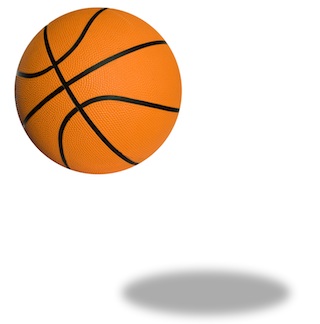You want to be a better martial artist. But what exactly does that mean?
Earning a new belt?
Winning a tournament?
Learning a new kata?
Throwing higher kicks?
Feeling safer in a crowd?
Many students don’t know what “better” means. They don’t know how to measure progress. They lack a clear idea of what success looks like, which means they won’t recognize success even if they achieve it!
In Two Questions to Be a Martial Arts Master, I shared my experience asking students, “What are you working on?” and being answered with blank stares. Even after years of study, many practice in a fog, leaving progress to chance.
Big mistake!
When your definition of success is unclear, your confidence will drift in one of two directions…
Direction #1: You feel terrible about your martial arts training. You never feel smart enough, strong enough, or tough enough. In short, you feel like a loser.
Feelings like incompetence, confusion, and frustration will eventually lead you to quitting martial arts.
Direction #2: You feel great about your martial arts training. You feel smart, strong, and skilled. In short, you feel like a winner.
But be careful—too much confidence can be just as harmful as having too little! If you keep thinking, “I already know all this stuff,” you’ll grow bored with your training and quit.

Most students bounce between these two extremes like a basketball. Sometimes you feel terrible, sometimes you feel great. Sometimes you feel like a loser, sometimes you feel like the greatest martial artist of all time.
Inconsistency like that is exhausting! You want steady progress in your training, not erratic jumps and setbacks, right?
So, how do you find the sweet spot? How can you feel proud of what you’ve accomplished, but not so proud that you stop learning? How can you stay humble and on the road to improvement, but not end up overwhelmed?
Start by answering these three questions. They will help you identify you goals, measure what’s important, and get on track to becoming a better martial artist.
3 Questions to Be a Better Martial Artist
Note: None of these questions will help if you’re not 100% honest with yourself, so keep it real!
Why exactly did you sign up for martial arts classes in the first place? What was the big idea?
To get in shape?
To be a black belt?
To get out of the house?
To defend yourself?
Maybe you don’t even know why. Maybe martial arts just looked cool and you wanted to check it out. Whatever the case—
Write down or state out loud a reason for training. The more specific, the better. The sooner, the better.
If you want to get in shape, great! Measure your weight, stamina, and flexibility and stop worrying about sparring. You’re training for health, not trophies.
If you want to be a tournament champion, great! Measure your progress by medals and trophies and stop feeling guilty when you don’t stay up late studying the history of your art.
If you want to learn self-defense, great! Measure your comfort levels when practicing partner drills and stop feeling stupid because you don’t remember your katas.
See the pattern?
When you try to be great at everything, you neglect the one thing that means the most to you.
We only have so much time and energy. The moment you specify a reason for training, you can pay full attention to that goal and relax about the rest. I’ll give you an example…
Kung Fu is my main art. As much as I love it, I never felt confident in my ability to escape being pinned on the ground. So, I decided to take up Brazilian Jiu Jitsu… and I fell right into a trap!
Even though I was only interested in 20% of what was being taught (escaping from the bottom), I got sucked into worrying about every aspect of BJJ! I mean, who wants to be the worst student in class 80% of the time?
The pressure on my ego to be a great student of BJJ led to depression, because I knew I couldn’t make a full-time commitment to the art. As a result, I would drive home feeling like a loser. Until…
I remembered why I signed up. I remembered what I wanted. I didn’t care about tournaments, top game, or submissions. I just wanted to get back to my feet.
When my goal was clear, I could accept not being great at everything else. I knew what to measure and how to define my success. As a result, I started driving home feeling like a winner again.
Your turn. Identify one specific goal you want to achieve and immediately put all of your effort into that. Don’t let your ego pull you off track and make you feel bad about losing games you never wanted to play.
But be warned—when you figure out what you want, you may suddenly realize you’re in the wrong place or training with the wrong people!
That’s okay. I tried several styles before I found one that made me happy. And yes, even though starting over can feel like a bummer, you owe it to yourself to find a school that pays you back for your time and tuition. (For more on finding the best style for you, check out What is the Best Martial Art?)
So, before you head to your next class, write down or state out loud exactly what you want out of martial arts. Figuring out if you’re in the right place and doing the right things is the first step to becoming a better martial artist.
Students and teachers do not walk the same path in the martial arts.
If you want to be a great student, you have one job and one job only—to figure out what works for you and what doesn’t. That’s it.
Your teacher will present you with a wide range of concepts and techniques, and you should experiment and explore all of it. But over time, a great student will distill their experience into a list of favorite techniques and preferred strategies.
Great students make the art their own, expressing their physicality and personality as they see fit.
The path of a teacher, however, is a little different…
A great teacher must be more than a great student. To be a great teacher, you do not have the liberty to discard anything. You must hold on to everything your teacher shows you, whether it works for you or not.
Why?
Because your students are not you. The technique that doesn’t work for you may become your student’s best technique. The drill that feels like a waste of time for you may provide a life-changing moment for your student.
To be a great teacher, you must be more than a great student… you must be great “students”!
- If you are a six foot tall man, you must know how to adapt the art for a five foot tall woman.
- If you are aggressive, you must know how to design a strategy for someone who is passive.
- If you love grappling on the ground, you must know how to encourage someone who hates being on the ground.
Where great students figure out how to make the art their own, great teachers figure out how to make the art belong to everyone.
When your goal is to be a great teacher, your attention must include your classmates. When a teacher is giving another student a correction, you should make note of it. When a teacher has to modify angles or footwork to make a movement work for a different body type, you should seek to understand why.
Two different jobs. Two different paths.
Whichever path you choose, here’s one more tip to be a better martial artist…
Keep a notebook. I made that recommendation for all students in 5 Tips for Martial Arts Students, but for teachers, it’s even more essential.

Notebooks help me remember everything I was ever taught. Notebooks provide me with a long list of drills, exercises, and tips which come in handy when I’m trying to find new approaches to reach students who don’t “speak my language”.
Most importantly, my notebooks remind me of each step I took as a student. Like a diary, my notebooks take me back to the challenges I faced as a white belt… green belt… black belt. Those memories help me relate to the challenges my students are still facing.
It’s easy to forget how much you didn’t know!
So, make a choice. Are you a student or a student AND teacher-in-training? The sooner you decide, the sooner you can get on the path to greatness.
No, the question is not how much can you train or how much do you want to train… it’s how much will you train?
Are you a part-time or full-time student?
Will you attend one or two classes a week? Three or four? Six to seven?
Don’t lie to yourself! The results you can expect from practicing two hours per week versus 10 hours per week is H-U-G-E.
You can also expect different results if you wake up every morning to practice for an hour or take regular private lessons.
So, let me ask you again—how much time will you train?
To be a better martial artist, it’s crucial that you set realistic goals so you don’t get discouraged and quit.
- If you want to get in shape quickly, but only go to class once a week, you’re going to be disappointed.
- If you want to win tournaments, but only go to class twice a week, you’re going to lose, my friend.
- If you want to teach someday, but only go to class when you feel like it, you’re going to be a lousy teacher.
Don’t kid yourself—there’s nothing magical about martial arts training. No matter how much you love your style, or how great your teacher may be, you will only be as good as the amount of time you practice.
Period. End of story.
So, be honest with yourself. If you’re only able or willing to practice three times a week, say it. Accept it. Own it.
 Once you admit you can only devote a little time to training, you will take a load of pressure off your back trying to be the class star or a master overnight. Once you admit that martial arts is a hobby, not a profession, you won’t feel bad when you see students who practice more than you improving at a faster rate.
Once you admit you can only devote a little time to training, you will take a load of pressure off your back trying to be the class star or a master overnight. Once you admit that martial arts is a hobby, not a profession, you won’t feel bad when you see students who practice more than you improving at a faster rate.
The martial arts is all about building a better you. Even a little training is better than no training. So, be proud of yourself in each moment of practice.
The other advantage to being honest about your time commitment is that it will help you prioritize your training schedule.
- If you only practice two hours a week, skip the fancy moves and focus on basics.
- If you want to compete, focus on tournament skills.
- If you love kata and forms, practice them first before you run out of time.
Of course, the ego wants to be great at everything, but when time is limited, you have to pick your battles. So, focus on what’s most important to you first. But always leave a time for exploration and experimentation… you never know when you may be inspired to set a new goal.
There you have it. If you want to be a better martial artist, then sit down right now and have a little talk with your heart.
Get clear on what you want, who you want to be, and how much time you’re willing to work. Set your expectations, make your schedule, and enjoy the process.
Do all that and you’ll maximize your progress and keep your confidence level steady. That’s the secret to becoming a better martial artist.
FIRST TIME HERE?
Click for a quick tour!




Ossu! [bow]
Thank you so much for the tips on the “teacher” path. I’d already decided my course not long after watching brown belts promote to black. I watched what they went through and asked myself what would make it worth it to me to go through all that. I assessed the skills I already have – not just in Karate but in life. Teaching!
Great article – I’ve already answered these questions over the past 9 months that I’ve been training, but I know I’ll need to revisit the three questions over and over again throughout the years.
[bow]
OSU! Yes, Jo, it pays to step back every few months to review your goals. We all change as we journey along.
But for now, happy to hear you’ve chosen the teacher path. Your students will be lucky to have you! 🙂
Ossu! [bow]
Thank you so much for the encouragement 🙂
[bow]
I just want thanks for all of your support, help and realistic truth. These are questions I haven’t thought about before. I realize how these tips and secrets can help me help others. Also I now understand why I have been practicing for many years, but feel like I haven’t accomplished anything. I also would like to become a teacher some day in the martial arts. Thanks again for your time, energy and effort. May God continue to bless you and yours.
Hi Taharga!
Thanks for saying hello! I love hearing that you found something helpful not just for yourself, but for helping others. That made my day!
Blessings upon you, too! Keep kicking! 🙂
Sir ..Should I write my everyday lessons in same page as with bullet points or write like a diary..A single training a day..Today I learned this and that etc.
Hi Goutham! That’s a personal choice. Organize your thoughts however they make sense to you. I have cut up and rearranged my notebooks many times, so, just start gathering material and see how you end up using it.
Good for you!
I have been doing Tae KwonDo since 1971. I lost some of my flexibility from an old back injury. I am looking to improve my flexibility. I am 60 and still practice. I finished your 7 day challenge.
Barry! You sound like one tough guy. I have two articles on flexibility in case you haven’t seen them…
http://www.senseiando.com/flexibility-exercises-without-stretching/
http://www.senseiando.com/how-to-stretch-high-kicks-martial-arts/
Slow and steady, sir!
Sir , it’s taking so long to reach to the Black belt in TAEKWONDO ! I don’t have any questions with that . Cause I want improve myself better than ever . No matter if I get black belt or not . It’s depends on the fighter not to Black belt . But ! . Whenever I saw someone else (seniors) doing better than me I feel like I am nothing infront of them . I wish I could be like they are . Performing High Kicks , spinning kicks , 360 roundhouse , 540 kick etc. It’s something sad to me !
Hi Hrishikesh!
You’re sad to train with people better than you? You’re lucky! Right now, let them inspire you to be your best. One day, it will be your turn to inspire someone else. That’s how it works. So, be patient, my friend. Just train… and smile! 🙂